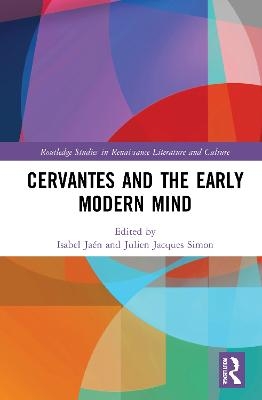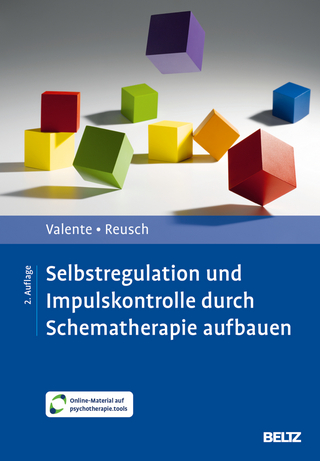
Cervantes and the Early Modern Mind
Routledge (Verlag)
978-0-415-78547-1 (ISBN)
This book explores the work of Cervantes in relation to the ideas about the mind that circulated in early modern Europe and were propelled by thinkers such as Juan Luis Vives, Juan Huarte de San Juan, Oliva Sabuco, Andrés Laguna, Andrés Velásquez, Marsilio Ficino, and Gómez Pereira.
The editors bring together humanists and scientists: literary scholars and doctors whose interdisciplinary research integrates diverse types of sources (philosophical and medical treatises, natural histories, rhetoric manuals, pharmacopoeias, etc.) alongside Cervantes’s works to examine themes and areas including emotion, human development, animal vs. human consciousness, pathologies of the mind, and mind-altering substances. Their chapters trace the cognitive themes and points of inquiry that Cervantes shares with other early modern thinkers, showing how he both echoes and contributes to early modern views of the mind.
Isabel Jaén is Professor of Spanish at Portland State University and holds PhDs from Purdue University and the Universidad Complutense of Madrid. She is co-editor of Cognitive Literary Studies (University of Texas Press, 2012), Cognitive Approaches to Early Modern Spanish Literature (Oxford University Press, 2016), and Self, Other, and Context in Early Modern Spain (Juan de la Cuesta, 2017). Julien Jacques-Simon is Associate Professor of Spanish at Indiana University East. He is co-editor of Cognitive Literary Studies (University of Texas Press, 2012), Cognitive Cervantes (special issue of the Bulletin of the Cervantes Society of America, Spring 2012), Cognitive Approaches to Early Modern Spanish Literature (Oxford University Press, 2016), and Self, Other, and Context in Early Modern Spain (Juan de la Cuesta, 2017).
Foreword: Historicizing Cognitive Approaches to Cervantes
Howard Mancing
Introduction: A Cognitive-Historicist Approach to Cervantes’s Work
Isabel Jaén and Julien Jacques-Simon
Section I – Views of the Mind in Early Modern Spain
Chapter 1 – Spanish Brain Science and Philosophy of Mind in the Time of Cervantes: Three Seminal Thinkers
Antonio Martín Araguz
Section II – Feeling, Thinking, and Remembering in Humans and Brutes
Chapter 2 – Emotion and Human Development in Cervantes’s Don Quijote: The Case of Sancho Panza
Isabel Jaén
Chapter 3 – Aging, Emotion, and Cognition: El viejo zeloso and Early Modern Thought
Elena Carrera
Chapter 4 – Human Thinking about Thinking Animals in the Early Modern Spanish and Spanish American World
Steven Wagschal
Chapter 5 – Wit, Imagination, and the Goat: The Untrodden Paths of Literary Creation in Cervantes’s Don Quijote and Huarte’s Examen de ingenios
Christine Orobitg
Chapter 6 – Cervantes and the Mother of the Muses: Views of Memory in Early Modern Spain
Julia Domínguez
Section III – Altered Minds: Causes, Effects, and Remedies
Chapter 7 – Melancholic Consciousness: Cervantes’s Contribution to Early Modern Views of Melancholy and the Emergence of the Fictional Mind
Isabel Jaén and Julien Jacques-Simon
Chapter 8 – Mind-Altering Agents in Cervantes’s Work: Regarding His Sources on Pharmacology
Francisco López-Muñoz and Cecilio Álamo
Chapter 9 – Don Quijote and Cervantes’s Knowledge of Neurological Disorders
José-Alberto Palma, Fermín Palma, and Julien Jacques-Simon
| Erscheinungsdatum | 13.05.2017 |
|---|---|
| Reihe/Serie | Routledge Studies in Renaissance Literature and Culture |
| Zusatzinfo | 2 Tables, black and white; 1 Halftones, black and white; 1 Illustrations, black and white |
| Verlagsort | London |
| Sprache | englisch |
| Maße | 152 x 229 mm |
| Gewicht | 439 g |
| Themenwelt | Geisteswissenschaften ► Philosophie |
| Geisteswissenschaften ► Psychologie ► Verhaltenstherapie | |
| Geisteswissenschaften ► Sprach- / Literaturwissenschaft ► Anglistik / Amerikanistik | |
| Geisteswissenschaften ► Sprach- / Literaturwissenschaft ► Literaturwissenschaft | |
| Naturwissenschaften | |
| ISBN-10 | 0-415-78547-2 / 0415785472 |
| ISBN-13 | 978-0-415-78547-1 / 9780415785471 |
| Zustand | Neuware |
| Informationen gemäß Produktsicherheitsverordnung (GPSR) | |
| Haben Sie eine Frage zum Produkt? |
aus dem Bereich


